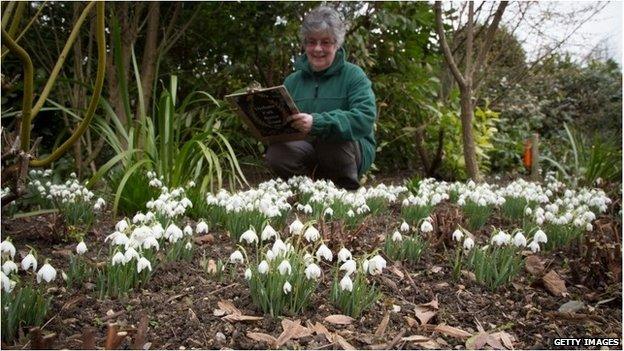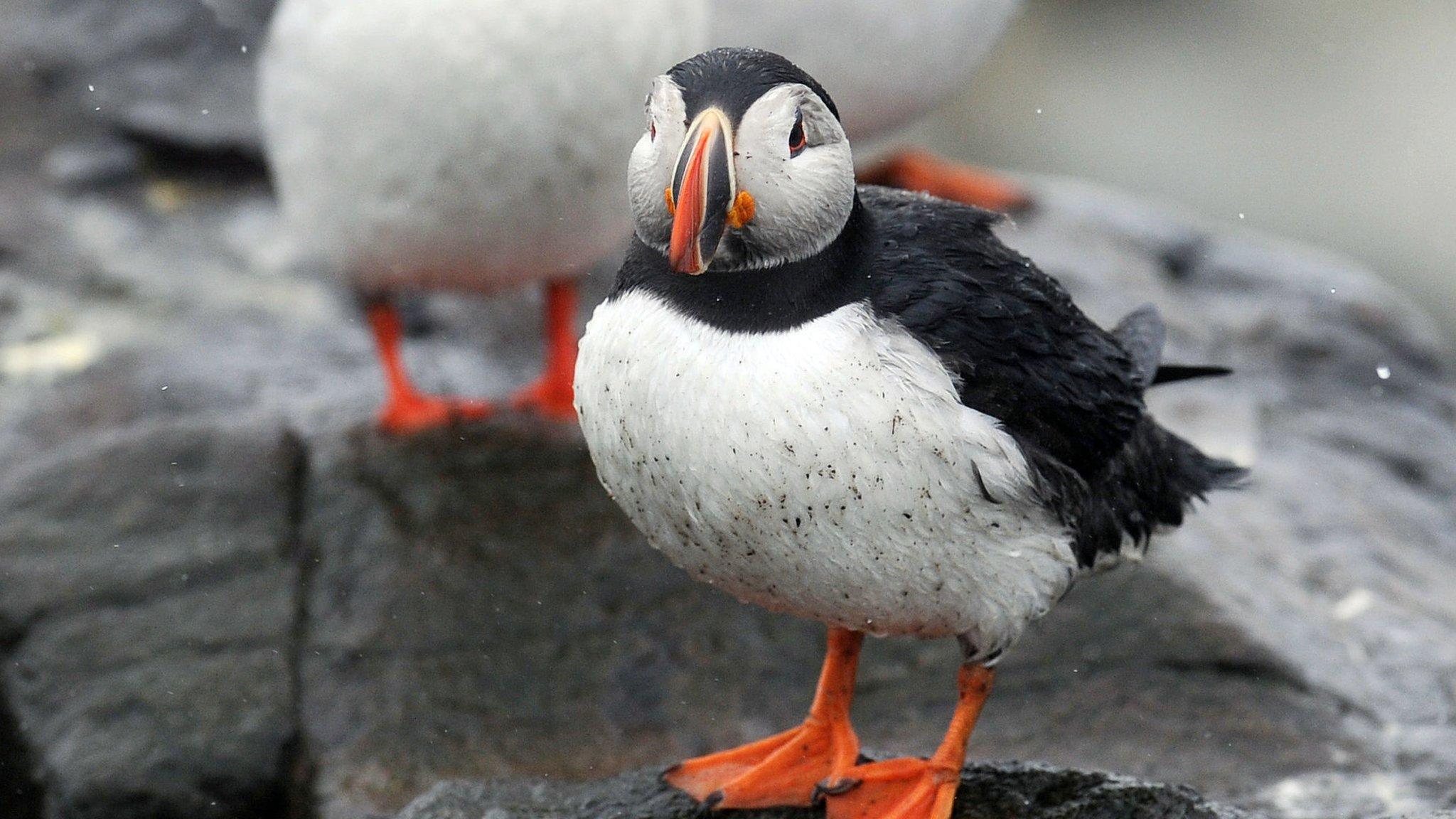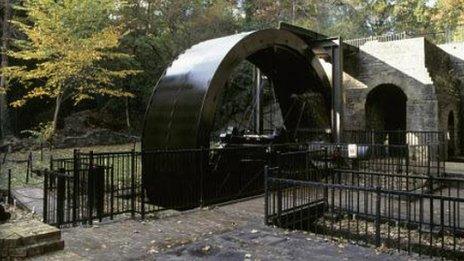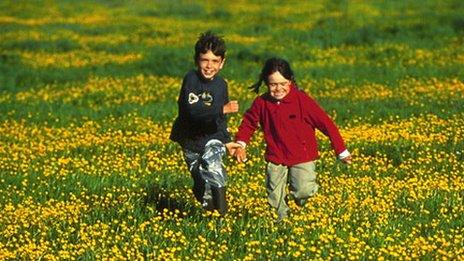Climate change 'biggest threat' to National Trust land
- Published

The National Trust has said climate change is the "biggest threat" to the land it protects.
Unveiling a 10-year plan to "nurse the natural environment back to health", the charity said there had been an "alarming decline in wildlife" and time was "running out" to avoid more harm.
It said it would spend about £1bn over the next decade on conserving its houses, gardens and countryside.
The money includes £300m for clearing a "backlog of repairs".
The trust said intensive farming and climate change had affected the "long-term health of the land", and cited RSPB research, external which suggested 60% of UK wildlife species had declined over the last 50 years.
The 10-year plan includes a drive to "increasingly join forces with other charities, government, business and local communities to improve the quality of the land and attract wildlife back to the fields, woods and river banks".
The trust, which has more than 4.2 million members and looks after about 600,000 acres of countryside, also said it would cut its energy use by 20% and repeated a pledge to get half of its energy from renewable sources.
Its director general, Dame Helen Ghosh, said the trust could make a difference by "showing people what good looks like" to encourage collective action.
Speaking on BBC Radio 4's Today programme, she said: "This is absolutely in the tradition of the National Trust - we always try to focus on the conservation challenge of the day... whether that was green spaces for the urban poor in the 19th Century, or the decline, the destruction, of the country house in the 20th."
- Published13 April 2014

- Published23 August 2013

- Published18 April 2013

- Published30 March 2012
